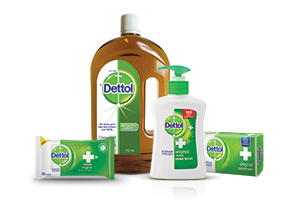In July (2017), Gauteng doctors from the neonatal unit at Chris Hani Baragwanath Hospital and pathologists at Steve Biko Academic Hospital noted an unusually high number of babies with listeriosis. They informed the National Institute for Communicable Diseases (NICD).
In December, the Department of Health officially announced an outbreak of the potentially deadly disease, with a total of 557 cases for the year – against an average of 60 to 80 a year. Of these 557 cases, 345 were reported in Gauteng, 71 in the Western Cape and 37 in KwaZulu-Natal. At least 36 people have died.
What it is
Listeriosis is a food-borne infection caused by the bacteria Listeria monocytogenes. These are found in soil and water, and can be carried in the intestines of animals. The animals don’t get sick, but their meat and dairy products can be contaminated, as can vegetables or other foodstuffs which come in contact with them or their manure, says Nevashan Govender, Emergency Operations Centre manager at the NICD.
How it's spread
The bacteria infect humans when we eat contaminated food – most commonly raw or unpasteurized milk, soft cheeses, processed meats, ready-to-eat meals, vegetables or other fresh produce.
The source of the recent outbreak is still being investigated, but the Minister of Health, Dr Aaron Motsoaledi, has announced that it may be from farms or food processing plants. It’s hard to pinpoint, as the incubation period can be 3 to 70 days, making it difficult for patients to recall what they ate and where they bought the specific food.
The symptoms
In otherwise healthy people, listeriosis can cause flu-like symptoms or mild to severe gastroenteritis, with fever, nausea and diarrhoea. But in those with weakened or immature immune systems, and underlying conditions such as HIV, diabetes, cancer, liver or kidney disease, it can lead to septicaemia if the infection spreads to the bloodstream, or meningitis if it spreads to the nervous system.
Who is at risk
Listeriosis is especially dangerous for pregnant women, as the bacteria can cross the placenta and cause miscarriage, stillbirth or premature delivery, and babies can be born with meningitis and suffer permanent disability. “Newborns, the elderly and those with underlying immune-compromising conditions are very vulnerable,” says Govender.
What are the signs?
In healthy people, symptoms are usually fever, nausea and possibly vomiting and diarrhea, general body pains and weakness. But in people at high risk, if meningitis sets in there can be headaches, confusion, stiffness of the neck and convulsions.
What you should do
If you believe you are symptomatic, see your healthcare practitioner immediately, says Govender. A stool, blood or cerebrospinal fluid sample can confirm a listeriosis diagnosis. Gastroenteritis may not need treatment, but septicaemia and meningitis can be deadly and often require intravenous antibiotics.
How can you keep safe?
To help prevent infection, keep to the keys to safer food, Govender advises:
- Wash your hands well with hot, soapy water for at least 20 seconds before handling any food.
- Ensure food surfaces and utensils are clean.
- Wash vegetables and fruit well before eating them.
- When preparing food, separate raw food (especially meat, poultry and eggs) from cooked food and vegetables, fruit, bread or other foods.
- Cook food from animal sources thoroughly.
- Make sure the fridge is set at -4˚C, which makes it too cold for the bacteria to survive, and set the freezer temperature to below -18˚C.
If you’re at high risk:
- Avoid raw meat or milk products or unpasturised ones, and heat through deli meats until steaming hot to kill bacteria.
- Avoid soft cheeses such as feta, Brie, Camembert and goat’s cheese, and refrigerated pâtés.
- Avoid prepared deli salads.
ARTICLE IMAGE CREDIT: Getty Images
FEATURED PRODUCT: Dettol
Make use of the convenience of online shopping to stock up on all home and personal hygiene essentials with Dettol.


